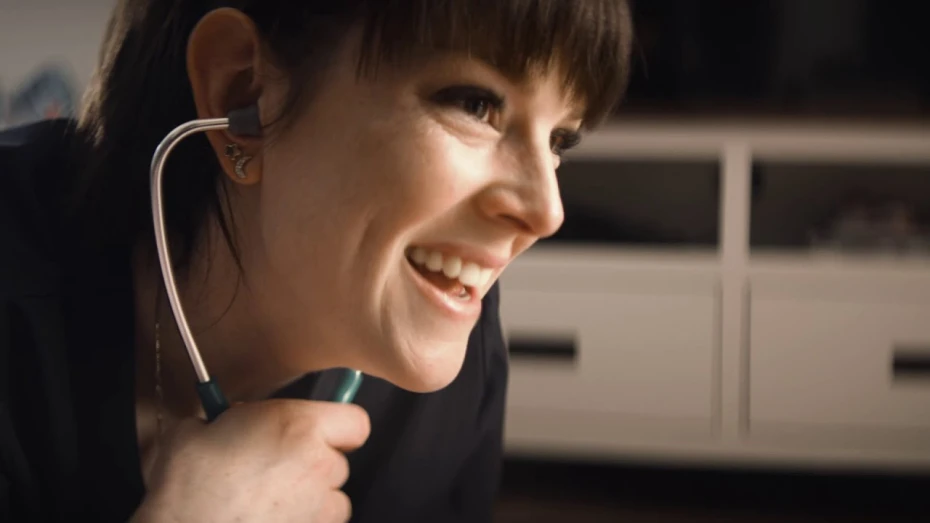Key details
Duration
Locations
Entry requirements
View full entry requirementsCredit points required
160Course code
Overview
Play a crucial role in patient care by specialising in the diagnosis, monitoring, and treatment of disease. The Master of Medical Laboratory Science equips you with advanced knowledge, practical skills, and real-world experience in diagnostic pathology.
Gain expertise in key laboratory disciplines, including haematology, microbiology, clinical chemistry, anatomical pathology, and genomics. This program prepares you for a rewarding career in diagnostic pathology, research, forensic science, public health, academia, or the biomedical and pharmaceutical industries.
Career opportunities
A Master of Medical Laboratory Science equips you with the specialist knowledge and practical skills required to succeed in a range of dynamic careers. You will be qualified for roles in diagnostic pathology, cutting-edge research, forensic science, public health initiatives, educational settings, and the biomedical and pharmaceutical sectors. Furthermore, the program's comprehensive training across all diagnostic laboratory departments makes you an ideal candidate for contributing to the vital healthcare services of regional and rural communities
Practical experience
Students will be required to undertake 16 weeks of placement under the supervision of a hospital scientist within a NATA and ISO15189 accredited laboratory.
The faculty will source placements for students; however, students need to be compliant (met all of the pre-placement requirements) before they can start their workplace placement. Some of these requirements can take up to 8 months to complete, it is therefore recommended that students speak to their course coordinator and initiate this process at the beginning of their degree once they have enrolled.
When students accept an offer into their course, they acknowledge they are required to undertake placements as indicated by their course study plan. Students are expected to organise their personal, work, and other commitments to enable them to attend their placement as scheduled. Placements can be scheduled outside of the semester and students may be required to travel up to 120 minutes each way to attend their placement. .
Professional recognition
All graduates of this course are eligible to apply to the Australian Institute of Medical and Clinical Scientists (AIMS) for professional recognition.
Credit transfers and advanced standing
Pathways
Pathways for Higher Education to Higher Education
For information about credit transfer available to students with complete or incomplete study at this or other Institutions refer to Pathways for Higher Education to Higher Education
Credit transfer
For further information on credit transfer and how to apply visit ASK CDU
Credit transfers and advanced standing
Credit transfer
For further information on credit transfer and how to apply visit ASK CDU
Fees
Commonwealth supported places
Commonwealth Supported places are available in this course to students who meet one of the following residency requirements:
(a) be an Australian citizen, who will complete some of your course of study while resident in Australia; or
(b) a New Zealand citizen; or an Australian permanent visa holder; or an eligible former permanent humanitarian visa holder; who studies the entire course while living in Australia.
Further information about fees and charges can be found at Fees and Payments.
Non-Commonwealth supported places
Full fee paying places are available in this course.
Information about fees and charges can be found at Fees and Payments.
International tuition fees
The annual tuition fee for full time study in 2026 is AUD $40,784.00. This equates to $5,098.00 per 10 credit point unit (0.125 EFTSL).
These fees are subject to increases annually, effective at the start of each calendar year.
You can find a list of International fees and payments you can expect to pay as part of your studies in Australia. See 2026 Higher Education International Annual Tuition Fees.
CDU offers a number of scholarships to international students to assist with the cost of study.

Why study a postgraduate degree at CDU?
Study a postgraduate course at Charles Darwin University to upskill at work, fast-track your career, increase your job prospects or explore a new interest. We offer flexible study options so you don't have to put your life on hold while you learn.
- #2 Australian uni for postgraduate employment outcomes (GUG 2024)
- Top 100 university globally for quality education
- Our graduates enjoy higher than average employment rates and starting salaries

Why study a postgraduate degree at CDU?
Study a postgraduate course at Charles Darwin University, the #2 Australian university for postgraduate employment outcomes (GUG 2024).
- Top 100 university globally for quality education (THE Impact Rankings 2021)
- Our graduates enjoy higher than average employment rates and starting salaries

Why study a postgraduate degree at CDU?
Study a postgraduate course at Charles Darwin University to upskill at work, fast-track your career, increase your job prospects or explore a new interest. We offer flexible study options so you don't have to put your life on hold while you learn.
- #2 Australian uni for postgraduate employment outcomes (GUG 2024)
- Top 100 university globally for quality education
- Our graduates enjoy higher than average employment rates and starting salaries

Why study a postgraduate degree at CDU?
Study a postgraduate course at Charles Darwin University, the #2 Australian university for postgraduate employment outcomes (GUG 2024).
- Top 100 university globally for quality education (THE Impact Rankings 2021)
- Our graduates enjoy higher than average employment rates and starting salaries
What will I study?
The Master of Medical Laboratory Science comprises of core units within the diagnostics specialisations; haematology, transfusion medicine, pathology, clinical chemistry, bacteriology, mycology, virology and parasitology, and be introduced to research. Students will undertake two professional placements in diagnostic laboratories.
Course structure
A candidate must successfully complete units totalling 160 credit points (cp) as detailed below. All units are valued at 10 credit points unless otherwise indicated.
| Unit type | Credit Points | Specific requirements |
| Core Units (14 units) | 160cp | Compulsory Core units totalling 160 credit points as per the list of units detailed below: MLS200 Haematology 1 (replaced MLS101 from 2025) |
| 160cp | Total Credit Points |
Course Rules (unless otherwise indicated in the above course structure)
- See the Higher Education Course Rules (Award Requirements) in the Units and Courses Policy.
## Work Integrated Learning: Students are required to attend the clinical placement hours as allocated by CDU Placement Office.
COURSE CHANGES AND TRANSITIONAL ARRANGEMENTS - 2026
The following unit changes apply to this course from 2026:
- PHA214 Biotechnology and Genomics has been replaced by SBI254 Biotechnology and Genomics. Students that have completed PHA214 should not complete SBI254
- PHM526 Research Design has been replaced by HEA527 Research Skills for Health Professionals. Students that have completed PHM526 should not complete HEA527
COURSE CHANGES AND TRANSITIONAL ARRANGEMENTS - 2025
The following unit changes apply to this course from 2025:
- MLS101 Haematology 1 has been replaced by MLS200 Haematology 1. Students that have completed MLS101 should not complete MLS200.
- MLS245 Medical Biochemistry is replaced by MLS211 Introduction into Clinical Chemistry. Students who have completed MLS245 should not complete MLS211.
- SBI284 Histology and Histochemistry has been replaced by SBI384 Histology and Histochemistry. Students that have completed SBI284 should not complete SBI384.
Please note the following unit change from 2026:
- PHA214 Biotechnology and Genomics will be replaced by SBI254 Biotechnology and Genomic. Students that have completed PHA214 prior to 2026 should not complete SBI254.
COURSE CHANGES AND TRANSITIONAL ARRANGEMENTS - 2024
MLS245 replaces PHM527 from 2024. Students who have completed PHM527 prior to 2024 do not need to complete MLS245. Students who has not completed PHM527 must complete MLS245.
COURSE CHANGES AND TRANSITIONAL ARRANGEMENTS - 2022
Students enrolled prior to 2022 should note the following changes to the course structure from 2022
- SBI541 Pathophysiology has been added as a core unit
- The 10 credit point specialist elective requirement has been removed
Students enrolled prior to 2022 and who have already completed a specialist elective should not complete the new core unit SBI541.
Students enrolled prior to 2022 and who have not already completed a specialist elective should complete the new core unit SBI541 instead.
The following specialist elective requirements have been removed from the course structure.
| Specialist Electives (1 unit) | 10cp | Specialist Elective units totalling 10 credit points selected from the list of available units detailed below: PHM516 Indigenous Health |
COURSE CHANGES AND TRANSITIONAL ARRANGEMENTS - 2021
From 2021 the following core units are no longer required - see transition arrangements below:
MLS245 Medical Biochemistry* (no longer required)
PHM553 Biostatistics (no longer required)
MLS245 Medical Biochemistry has been removed from the course structure. Students that have completed MLS245 need to contact the course coordinator for progression advice.
PHM553 Biostatistics has been removed from the course structure. Students that have completed PHM553 can count this as a specialist elective unit. Students who have already completed a specialist elective unit should contact the course coordinator for progression advice.
PHM526 Research Design and PHM527 Research, Ethics and Impact have been added and are required core units.
Study plan
STUDENTS COMMENCING IN SEMESTER 1
The Recommended Study Plan provided below is suitable for students enrolling in a full-time or part-time study load. Students entering this course with advanced standing, or wishing to vary their study plan due to work, personal, financial or other reasons should use the table as a guide to create an individual study plan.
When designing an individual study plan:
- maintain the basic order in which units are to be attempted; and
- check the assumed knowledge, pre-requisite and co-requisite requirements for each unit
| Legend: | CO = Core Unit |
Full-Time Study Plan
| Semester 1 | Semester 2 | Summer Semester | |||
| Calendar Year 1 | |||||
| MLS200 Haematology 1 (replaced MLS101 from 2025) | CO | MLS502 Diagnostic Haematology | CO | SBI384 Histology and Histochemistry (replaced SBI284 from 2025) | CO |
| MLS211Introduction into Clinical Chemistry (replaced MLS245 from 2025) | CO | SBI254 Biotechnology and Genomic (replaces PHA214 from 2026) | CO | ||
| MLS582 Bacteriology | CO | MLS511 Clinical Chemistry | CO | ||
| SBI541 Pathophysiology | CO | ||||
| Calendar Year 2 | |||||
| MLS500 Anatomical Pathology | CO | MLS600 Laboratory Placement 1 (20cp) ## | CO | ||
| MLS501 Immunohaematology | CO | ||||
| MLS512 Mycology, Virology & Parasitology | CO | MLS610 Laboratory Placement 2 (20cp) ## | CO | ||
| HEA527 Research Skills for Health Professionals (replaces PHM526 from 2026) | CO | ||||
## Work Integrated Learning: Students are required to attend the clinical placement hours as allocated by CDU Placement Office.
| Legend: | CO = Core Unit |
Part-Time Study Plan
| Semester 1 | Semester 2 | Summer Semester | |||
| Calendar Year 1 | |||||
| MLS200 Haematology 1 (replaced MLS101 from 2025) | CO | SBI254 Biotechnology and Genomic (replaces PHA214 from 2026) | CO | SBI384 Histology and Histochemistry (replaced SBI284 from 2025) | CO |
| MLS582 Bacteriology | CO | ||||
| Calendar Year 2 | |||||
| MLS211Introduction into Clinical Chemistry (replaced MLS245 from 2025) | CO | MLS502 Diagnostic Haematology | CO | ||
| SBI541 Pathophysiology | CO | MLS511 Clinical Chemistry | CO | ||
| Calendar Year 3 | |||||
| MLS501 Immunohaematology | CO | MLS600 Laboratory Placement 1 (20cp) ## | CO | ||
| HEA527 Research Skills for Health Professionals (replaces PHM526 from 2026) | CO | ||||
| Calendar Year 4 | |||||
| MLS500 Anatomical Pathology | CO | MLS610 Laboratory Placement 2 (20cp) ## | CO | ||
| MLS512 Mycology, Virology & Parasitology | CO | ||||
## Work Integrated Learning: Students are required to attend the clinical placement hours as allocated by CDU Placement Office.
STUDENTS COMMENCING IN SEMESTER 2
This course is not available for Semester 2 commencement.
Entry requirements
Admission criteria
Applicants must have successfully completed:
- a recognised bachelor degree or international equivalent qualification in a biomedical or medical health discipline.
- at least one unit (or studies within a unit) at a degree level or higher in each of the following fields:
- Anatomy & Physiology
- Biochemistry
- Microbiology
- Immunology
- Genetics.
Due to professional recognition, applicants who have completed a Bachelor of Medical Laboratory Science undergraduate degree are not eligible for entry into this course.
Essential requirements
All students are required to meet the Faculty of Health pre-placement checks, including but limited to national police check, working with children card and a range of vaccinations, prior to commencing their placements.
English language requirements
DOMESTIC STUDENTS
To gain entry into Charles Darwin University, all Higher Education applicants must satisfy the University's English Language Proficiency Requirements for their chosen course of study. All applicants will be required to supply evidence of this at the time of application.
The minimum English language requirement for this course can be met by evidencing of one of the following:
| Year 12 | Successful completion of Year 12 within Australia, or an equivalent qualification from an approved country where English is the official language (refer to our approved standard and extended lists included below). |
| 0.5 FTE Higher Education Study | Successful completion of at least 0.5FTE of higher education study from Australia or an approved country where English is the official language (refer to our approved standard and extended lists included below). If studies were completed from a country on the extended list, they must have been completed within the past five (5) years. |
| CDU Enabling Course | Successful completion of a Charles Darwin University enabling program of at least 0.5FTE (40 credit points). |
| TAFE Qualification | Successful completion of a recognised TAFE qualification at a Certificate III level or higher from Australia. |
| AHPRA Registration | Current AHPRA registration as a Division 1 or Division 2 nurse. Registration must be current at the time of course commencement. |
| English Test^ | Completion of an approved English test within two years of commencement, meeting the minimum scores outlined in the table below. |
^ Minimum Requirements for English Tests:
| Postgraduate requirements | Undergraduate requirements | |
| CDU ELICOS - English for Academic Purposes | Successful completion of EAP004 | Successful completion of EAP003 |
| International English Language Testing System (IELTS) Academic test | Overall minimum: 6.5 No band below: 6.0 | Overall minimum: 6.0 No band below 6.0 |
| Cambridge English: Advanced (CAE) | Overall minimum: 176 No skill below: 169 | Overall minimum: 169 No skill below 169 |
| Pearson Tests of English (PTE) Academic | Overall minimum: 58 No score below 50 | Overall minimum: 50 No score below: 50 |
| Test of English as a Foreign language | Overall minimum: 79 Minimum writing score: 21 | Overall minimum: 60 Minimum writing score: 21 |
IELTS One Skill Retake is accepted, allowing candidates to retake a single skill within 60 days of sitting their initial test. One Skill Retake results are valid for two years from the date of the first test (not from the date of the Retake test) to the date of commencement at CDU.
CDU accepts combined results from two test sittings of IELTS Academic, PTE Academic, or TOEFL, taken within a six-month period, if:
- Both tests were under the same testing system; and
- The overall score in both tests meets the overall minimum; and
- The applicant achieved the section minimum for each section in at least one test.
Recognised English-speaking countries:
| Standard List | Antigua and Barbuda, Australia, Barbados, British Virgin Islands, Canada, Ireland, New Zealand, Singapore, South Africa, United Kingdom, United States of America. |
| Extended List | Bermuda, Botswana, Cayman Islands, Ethiopia, Fiji, Kenya, Malawi, Malta, Mauritius, Seychelles, St Vincent and the Grenadines, Tanzania, Trinidad and Tobago, Vanuatu, Zimbabwe. |
For further details on the English requirements for CDU courses, please refer to the CDU English Language Proficiency Policy.
INTERNATIONAL STUDENTS
To gain entry into Charles Darwin University, all Higher Education applicants must satisfy the University's English Language Proficiency Requirements for their chosen course of study.
The minimum English language requirement for this course is met by either undertaking previous education from an English-speaking country or undertaking one of the following English language tests and obtaining the minimum requirements listed below.
| IELTS Academic Module (including One Skill Retake) | A minimum overall score of 7.0 with no band less than 6.5. |
| Cambridge Advanced English (CAE) | A minimum score of 185 in each of the 4 test components (listening, reading, writing, and speaking). |
| Pearson Test of English (PTE) Academic module | A minimum overall score of 65 with no score less than 65 across all modules (reading, writing, speaking and listening). |
| TOEFL Internet-based Test (iBT) | A minimum overall score of 95 with a minimum score of 24 in reading and listening, a minimum score of 27 in writing and a minimum score of 23 in speaking (total score of 98 points or higher). |
| Occupational English Test (OET) | At least a B grade in each of the 4 test components (or a minimum score of 350 in each section). Must be completed in a profession AIMS considers relevant to Medical Laboratory Science i.e. Medicine, Nursing, Dentistry, Pharmacy. |
* All tests are valid for two years from the date of the test to the date of commencement at CDU, unless otherwise specified.
* Where applicable, international applicants must also satisfy the Department of Home Affairs (DHA) English language requirements for student visa applications.
Do you have a question regarding English requirements at CDU? Please email: international@cdu.edu.au.
The people-first approach to flexibility and supportive learning environment at CDU meant I could find a balance with study, work and family life.
Nikki
CDU student

CDU graduates have the best career and employment prospects. International students have ranked CDU 1st in Australia for learning and living experience
Hema
CDU student

The people-first approach to flexibility and supportive learning environment at CDU meant I could find a balance with study, work and family life.
Nikki
CDU student

CDU graduates have the best career and employment prospects. International students have ranked CDU 1st in Australia for learning and living experience
Hema
CDU student

Course details
Inherent Requirements
There are inherent requirements for this course. Students must read and understand the requirements for this course.
Australian qualification framework
This course is recognised in the Australian Qualifications Framework at Level 9.
Additional information
Contact details
For further information about the course, enrolment procedures, closing dates and other administrative issues please contact Student Central on:
You make CDU
Together we are a positive force for change in our communities and the world.
You make CDU
Our students choose to study with us because we share the same vision – to make a positive change. Whatever your motivation is, we can guide you in the right direction.
You make CDU
Together we are a positive force for change in our communities and the world.
You make CDU
Our students choose to study with us because we share the same vision – to make a positive change. Whatever your motivation is, we can guide you in the right direction.
How to apply
There are many ways to apply to CDU. The method you use depends on your course type, where you live and whether you are a new or returning student to CDU.
Remember to apply early for your best chance at securing an offer to study with us.
SATAC
SATAC is the application channel for residents of NT, ACT, SA, WA, QLD, VIC, NSW or TAS.
International applications
Applications must be submitted online through our application portal, Studylink. You'll need a valid email address to create your online account. Once you have started your application, you will be able to save it and resume it later. There is no application fee when you apply online.
You may be able to lodge a direct application; however, there may be restrictions on your geographic location. If you cannot submit a direct application via the application portal, please apply through one of our registered agents.



Share this course